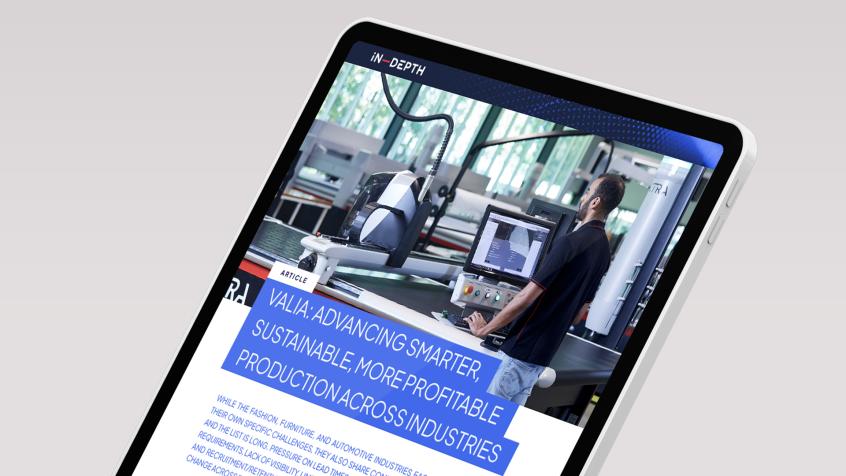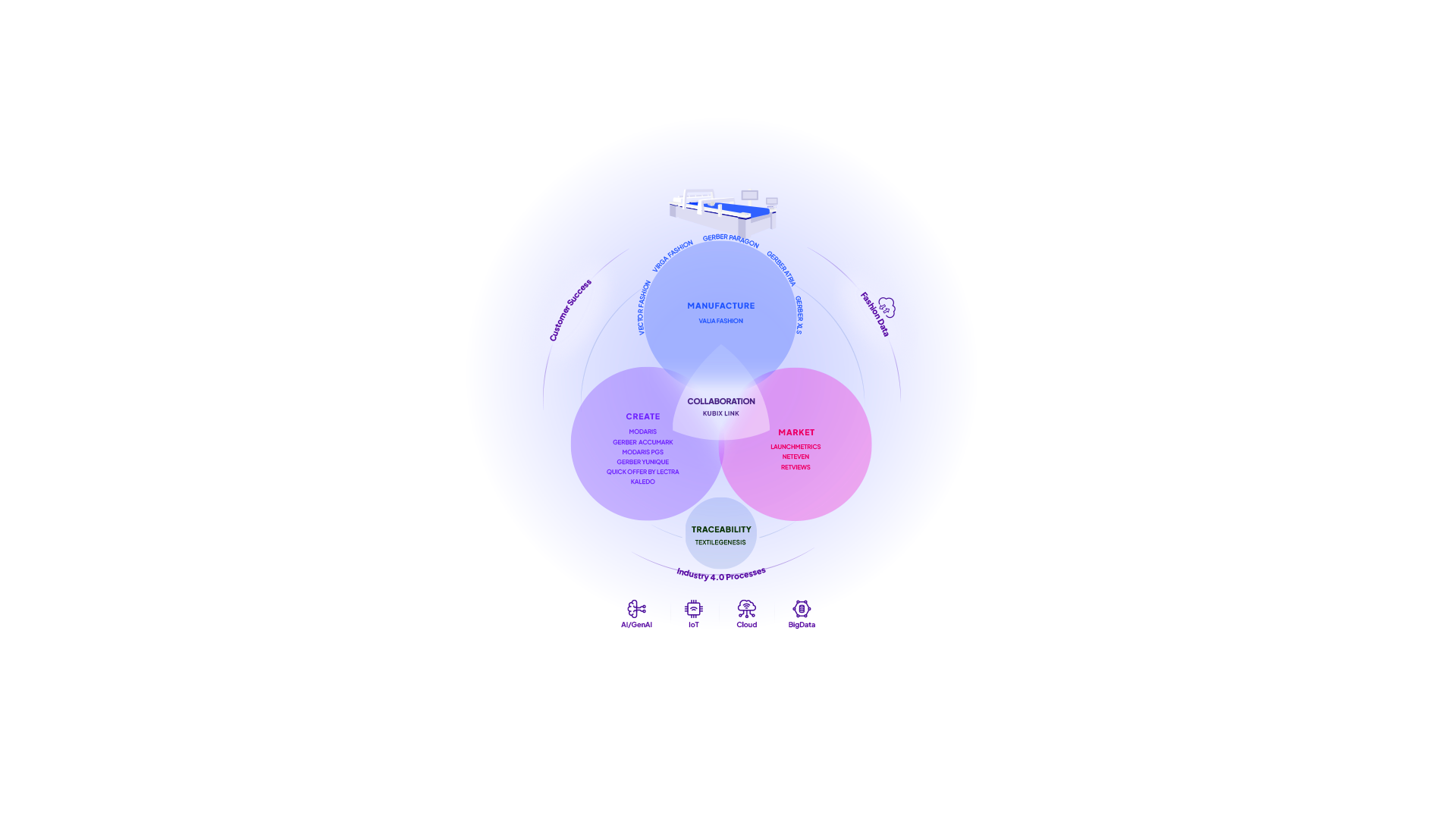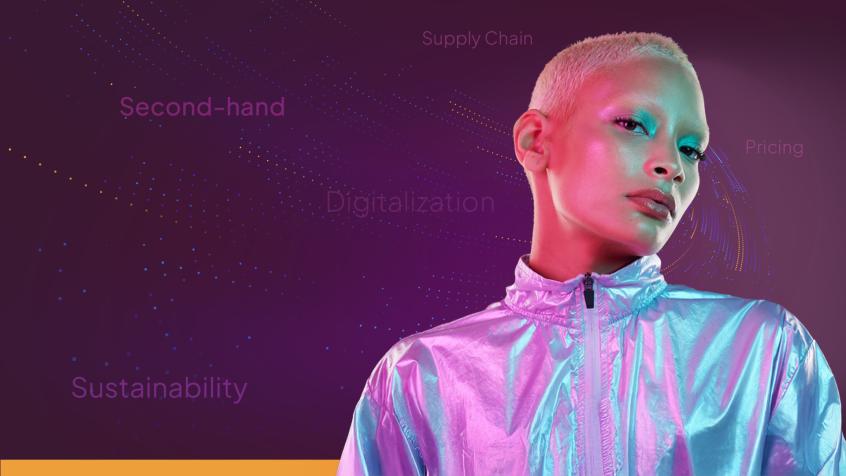Fashion
We light the way so that you can lead with style
- Ensure top-line growth
- Achieve long-term profitability
- Stand out with sustainability

Lectra, your transformation partner
Reimagine fashion with data-driven, Industry 4.0 solutions.
From concept to consumer, Lectra helps you move faster, make smarter decisions, and achieve profitability—while staying sustainable and compliant.

Lectra and the fashion industry
Bridge gaps in the fashion value chain
Manage the fragmented value chain
Adopt fashion-specific processes
Make sustainability an imperative
Meeting the moment

To enhance fashion processes

Create

Manufacture

Market

Collaborate

Trace
Weave success into the fabric of your business, with solutions that support every phase of the garment lifecycle. Create better, manufacture better and market better, empowered by real-time insights, seamless collaboration and complete traceability.
An interconnected approach ensures fashion data flows freely through every stage of the process, supported by Industry 4.0 technologies.
Making your path to growth, profitability and sustainability clear.
Turn Fashion's unique challenges into opportunities
How Lectra helps you succeed in fashion

Industry 4.0 processes
Lectra connects the entire fashion value chain through real-time, accurate data. These advanced processes improve agility, boost collaboration, and reduce costs and lead times—ultimately enhancing quality and customer satisfaction.
Fashion Data
From product specifications and production details to pricing and sales performance, fashion data spans the full product lifecycle. Lectra helps you turn this data into strategic insights that inform decisions and drive operational improvements.


Technologies 4.0
Embracing technologies like Cloud, Big Data, IoT, and AI, Lectra equips your business to process and analyze large volumes of data in real time. This enables greater agility, faster response to trends, and better alignment with customer expectations.
Customer Success
Lectra is committed to your long-term success. Our end-to-end support includes advanced tools, expert services, and personalized guidance to ensure you get the most out of every solution—empowering innovation and sustainable growth in the fashion industry.

Our Fashion solutions
What our customers say
Philippe Prouvost
Émilie Zannier
Latest resources












